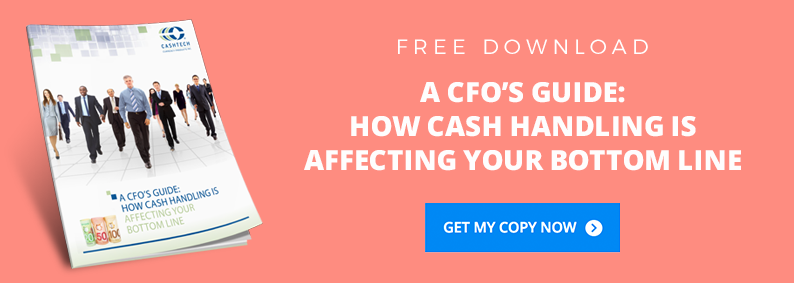If you’re trying to run a business, you’re probably all too familiar with unsolicited advice coming your way. It sometimes seems like everyone knows the secret to business management, but while certain pieces of advice can be helpful, others can push you in the wrong direction. This is especially true of advice concerning cash handling, the backbone of any business. Implementing the wrong piece of advice about how to execute cash management can have serious and adverse effects on your bottom line. To help you better navigate any guidance you receive, here are the worst pieces of advice we’ve ever heard about cash handling.
It’s Okay to Share Registers
If you’re swamped, switching tills takes time that you might feel could be better used taking care of lines and serving customers. Lots of people will tell you that having your cashiers share a register is no big deal, however, be warned: this is bad advice. When it comes to cash handling, cutting corners is never a good idea. Sharing a register means forfeiting accountability, as you are no longer able to trace an error back to the cashier responsible. You’re also making yourself more vulnerable to theft, since a single cashier cannot be found at fault if multiple people used the same register. Assigning a unique register to each cashier will save you considerable grief in the long run, and will establish an environment that prioritizes accountability, accuracy, and security.
Only Shortages Matter
Shortages are obviously never a good thing, and any measures you can take to avoid them are to your benefit. However, overages should concern you as well. Businesses are often advised not to worry about overages, since it means your company took in a greater profit. However, overages are a definite red flag. They signal that your cashier has made an error in the cashing out process, which is never a good thing. It could also mean your customer has been cheated out of their money, and customers who realize they are being shortchanged will be irate, and less likely to frequent your business. It could also mean that your cashier is not ringing all items through, and therefore, your sales are not accurately representing inventory. While having extra money in the till might seem like a good thing, overages need to be taken seriously.
Manual Counterfeit Detection is Enough
If you’ve been advised to forego automated counterfeit detectors in lieu of manual detection, think again! The circulation of counterfeit currency is widespread, and can represent significant financial losses for your company if not properly detected. While there are numerous security features embedded in currency for fraud prevention, counterfeiters are regularly finding ways around these features, making counterfeit currency more and more difficult to distinguish. Even when cashiers remember to check suspicious bills, there is no guarantee that they will be able to discern the validity of the currency. With counterfeit detectors, cashiers can quickly and accurately determine immediately if the cash is legitimate, saving you money and trouble.
Only Large Businesses Should Use Automated Cash Management
One of the most nefarious pieces of advice when it comes to cash handling is that manual cash management is the cheaper option for small and medium sized business, and that automated cash management is only beneficial for large businesses and banks. On the contrary, automated cash management solutions can be invaluable to small to medium business owners. Efficiency, reduced labour costs, and minimizing accounting errors are all top priorities for smaller businesses, where the effects of financial loss are more acutely felt. While transitioning to an automated cash handling system means an initial investment of capital, the returns promise significant financial rewards in the future, and can be an integral part of helping small businesses grow.



